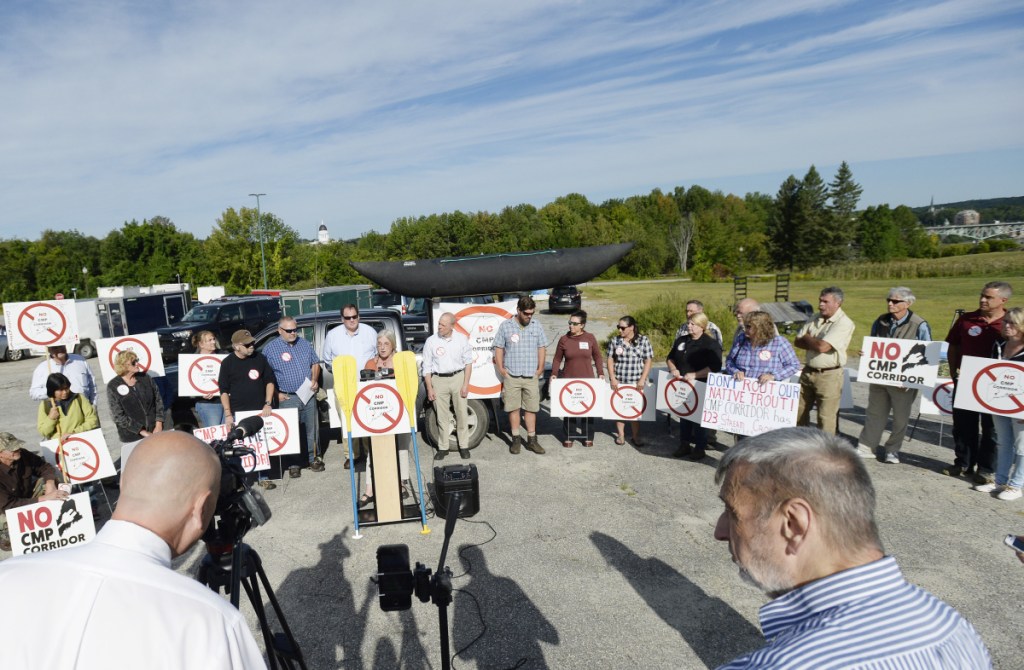The 2015 Paris Climate Agreement set a goal of reducing greenhouse gas emissions sufficiently to keep global warming below a 2 degree Celsius (3.6 Fahrenheit) increase; if that target isn’t reached, climate risks grow exponentially.
Despite U.S. withdrawal from the agreement, many states have set aggressive emission reduction goals, including New York and all New England states. Maine’s goal is to reduce emissions to 75 percent to 80 percent below 2003 levels by 2050. Massachusetts and New York target 80 percent below 1990 levels by 2050.
I believe that every person, corporation, institution and government has a moral obligation to help meet these goals for our children and grandchildren. But right now the constituents with the most responsibility to move us forward are instead arguing about issues with the proposed Quebec-to-Massachusetts powerline project from Central Maine Power that are insignificant compared to climate risk.
The Natural Resources Council of Maine and the Sierra Club argue that HydroQuebec will redirect power from New York and that New York will backfill that loss with natural gas and coal. This is an hypothesis without any publicly released evidence, and one would think that Massachusetts and New York, each having more aggressive climate goals than Maine, would be objecting. Natural gas companies are lining up with NRCM and the Sierra Club in opposition to the powerline. Why?
HydroQuebec says that they have surplus power in their reservoirs, that they are upgrading turbines and adding three more facilities to expand capacity. But they also haven’t publicly quantified the sources and flow of their power.
We read about the threat to freshwater fish and the boreal forest adjacent to the powerline. But if we fail to meet the 2-degree target, both will die off, along with alpine zones and portions of our northern hardwoods. The line crosses the Appalachian Trail in three places within 500 yards of each other. As a lifelong hiker, I’m way more concerned about the climate change risk to the ecozones through which the AT passes.
To meet the emission reduction goals set by Maine and New England, we need a regional plan. Electrons and greenhouse gases don’t follow state lines. The deep decarbonization plans already in the works in several countries electrify all forms of transportation, our biggest greenhouse-gas contributor, while converting fossil fuel-heating of homes and other buildings to electric heat pumps. This technology is already available, but requires a huge increase in affordable clean power.
The solar and wind industries are portrayed as threatened by hydropower but all sources of clean power will be needed, including the vast resources of HydroQuebec. Hydropower is a necessary component to offset the seasonal and daily variability of solar and wind.
So right now, the key constituents in Maine are arguing with each other instead of creating an effective emissions plan to reach Maine’s goals. CMP definitely has a poor track record on solar net metering, and they are demonized as a greedy investor-owned company. HydroQuebec is government owned and has a clearly stated climate mission, but they are also portrayed as untrustworthy. Furthermore, this project was initiated through a Massachusetts clean-energy request for proposals, not by CMP. And how will we reach Maine’s stated goals without cooperating with our public utility?
NRCM, the Sierra Club, the Legislature, CMP and the solar and wind industries need to drop their weapons, sit down and start developing a plan to meet the Maine’s stated greenhouse gas reduction goals in cooperation with New England and Quebec. We don’t have time for bickering when a comprehensive state and regional plan would benefit all of these constituents, the people of Maine and the world.
Get to work.
Tony Marple is a selectman in Whitefield. He was formerly chief financial officer of MaineGeneral Health and director of the Office of MaineCare Services.
Send questions/comments to the editors.



Success. Please wait for the page to reload. If the page does not reload within 5 seconds, please refresh the page.
Enter your email and password to access comments.
Hi, to comment on stories you must . This profile is in addition to your subscription and website login.
Already have a commenting profile? .
Invalid username/password.
Please check your email to confirm and complete your registration.
Only subscribers are eligible to post comments. Please subscribe or login first for digital access. Here’s why.
Use the form below to reset your password. When you've submitted your account email, we will send an email with a reset code.